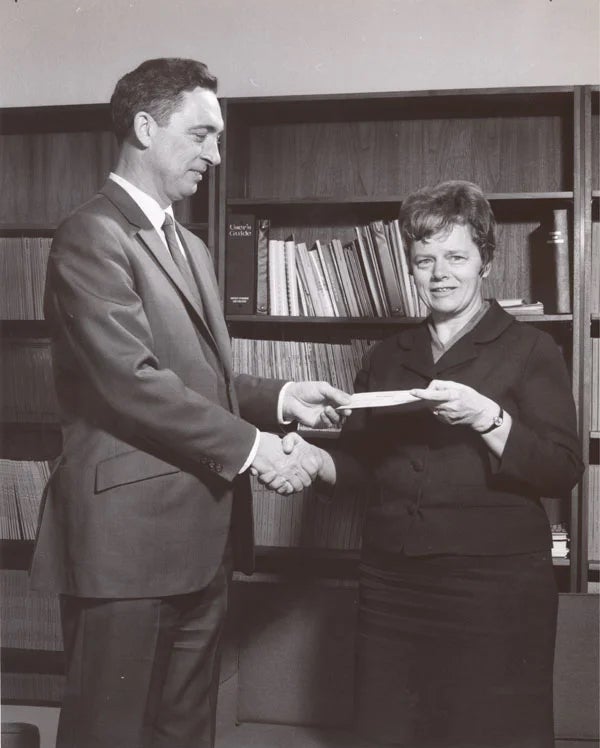Editor:
Brandon Sweet
University Communications
bulletin@uwaterloo.ca
Math shows how human behaviour spreads disease

Mathematics can help public health workers better understand and influence human behaviours that lead to the spread of infectious disease, according to a study from the University of Waterloo.
Current models used to predict the emergence and evolution of pathogens within host populations do not include social behaviour.
“We tend to treat disease systems in isolation from social systems, and we don’t often think about how they connect to each other, or influence each other,” said Chris Bauch, co-author and a professor in the Department of Applied Mathematics at Waterloo. “This gives us a better appreciation of how social reactions to infectious diseases can influence which strains become prominent in the population.”
By adding dynamic social interactions to the models already used for disease outbreaks and evolution, researchers could better anticipate how a virulent pathogen strain may emerge based on how humans attempt to control the spread of the disease. This new addition to disease modelling could allow scientists to better prevent undesirable outcomes, such as more dangerous mutant strains from evolving and spreading.
The social modelling could impact public health responses to emerging infectious diseases like Ebola and Severe Acute Respiratory Syndrome (SARS). Human behaviour during these outbreaks often changes dramatically during the outbreak. People may start using face masks, or stop using them prematurely. Also, public fear of the pathogens may end up driving the wrong type of behaviour if the public’s information is incorrect. The modelling could help public health responses navigate and better channel these kinds of population responses,
Bauch and his co-author Joe Pharaon formulated the new mathematical model to study the influence of social behaviour on the competition between pathogen strains with different virulence. Using computer simulations, they analyzed how the model behaved under various possible scenarios that might occur to populations to explore the logic of the hypothesis that social behaviour plays a role in the evolution of the strain.
“Human behaviour plays a big role in the spread and evolution of an infectious disease,” said Pharaon,a PhD candidate at Waterloo’s Faculty of Mathematics. “The model we formulated was a general model, but it could be adapted with more biological detail and structure for more specific pathogens.”
The paper, The influence of social behaviour on competition between virulent pathogen strains, appears in the Journal of Theoretical Biology.
Remembering Elsie Dodds

Elsie Dodds (Fischer), retiree and longtime manager of the University of Waterloo's bookstore, died on June 22 at the age of 95.
Hired in January 1955, Dodds originally worked in the Registrar's Office of Waterloo College (now Wilfrid Laurier University) and after six months was asked if she wanted to manage the college's "closet" bookstore operation - a 200 square foot space nestled in between Waterloo College's administrative offices and the Torque Room. In addition, she would serve as the student secretary and production manager of The Cord, Waterloo College's student newspaper.
"I would close the store on Thursday and type all day," she recalled in a 1998 interview. "Students would come in with the newspaper on Friday morning and I would print it and they'd collate it."
As the Waterloo College Associate Faculties came online, not much changed at first, though the increase in students meant that she had to give up the secretary position. It was Dodds who distributed the textbooks and drafting supplies to the very first class of Waterloo engineers in July 1957.
Even in those early days, the bookstore would do $400,000 in volume annually.
"We had only 350 students when we started, and then everything changed," she said.
When the nascent University of Waterloo moved its operations from Waterloo College to its newly-acquired campus north Waterloo in 1958, Dodds established a bookstore in the Chemistry and Chemical Engineering Building (in room 11, which they shared with the University's print shop) while continuing to run the main operation at Waterloo College. "Then one day Al Adlington asked me whether I was going to stay with WLU or come up here, and I made a decision then to come to the University of Waterloo."
The bookstore moved from Chemistry and Chemical Engineering (now the Douglas Wright Engineering Building) to Physics and Dodds was able to hire a full-time staff member.
In 1966 the bookstore became the target of a student sit-in as students protested the prices of textbooks, which were selling at retail costs. "We were aware of it because they were posting the book prices in the student newspaper and claiming we were charging too much, making 40 percent on some books. So we know there was going to be a sit-in."
On November 18, 1966, "the kids marched in and they sat on the floor and ate their lunch, played their guitars, and seemed to be having a good time," Dodds recalled. "It was a very well-organized and proper sit-in, but our security was right outside the door listening in case something happened."
Under Dodds' direction, the store staff kept right on working, stepping over bodies lying in the aisles, even bringing coffee at one point, and eventually protesters more or less got their way after negotiating with President Gerry Hagey, as the store adopted a discount policy on textbooks. "It was a very interesting day," Dodds said. "One of the guys leading the sit-in ended up becoming one of the most established businessmen in the area!"
Dodds retired after 33 years managing and directing the bookstore operations in June 1988. By then the bookstore's staff had grown to 29, with an annual volume of $6 million.
"When the bookstore was smaller and we didn't have as many students, there were many times when the kids would come in and chat," Dodds recalled in an interview. "I got to know them very well, I was Mother Confessor to many of them, they wanted to tell you their problems and they could relate to you on a personal level. Then for three years in a row we added 1,300 students a year. It was almost impossible to find space for all the books and to handle the fall rush. Our staff didn't grow by those leaps and bounds."
"In 1967, we moved to South Campus Hall, and we had all the space we thought we'd ever need," Dodds recalled. "Of course that wasn't true - we thought we'd have a maximum of 10,000 students."
Dodds was predeceased by her spouse Clovis. Dodds' passing removes one of the last living links, on the administrative side of things at least, to the founding of the University of Waterloo in 1957, and there remains only a handful of the inaugural 1982 cohort of the "25 year club".
"A big part of my career was watching things grow," Dodds once said. "I wouldn't have changed it for anything. It was great."
Link of the day
When and where
Quantum Cryptography School for Young Students (QCSYS), Friday, August 10 to Friday, August 17, Institute for Quantum Computing.
SynBio at Waterloo featuring Stanley Cohen, Stanford University, Friday, August 17, 9:30 a.m., QNC 1506.
Retirement celebration for Sue Steffler, Friday, August 17, 3:00 p.m. to 4:30 p.m., NH 3318.
QUANTUM: The Exhibition opens at the Ontario Science Centre, Saturday, August 18, 10:00 a.m., Ontario Science Centre, Toronto.
Deadline for students to get "Fees Arranged," Wednesday, August 22.
Research ethics system training, Wednesday, August 22, 9:00 a.m. to 10:30 a.m., EC5 3167 (please bring a laptop). For all upcoming sessions, please visit the Research ethics system webpage.
Velocity Science Graduate Office Hours: Book a time-slot, Wednesday, August 22, 10:30 a.m. to 1:00 p.m., STC 2002.
Multi-Year Accessibility Plan information session, Wednesday, August 22, 12:00 p.m. to 1:00 p.m., BMH 1016.
Research ethics system training, Thursday, August 23, 9:00 a.m. to 10:30 a.m., EC5 3167 (please bring a laptop). For all upcoming sessions, please visit the Research ethics system webpage.
Indigenous cultural sensitivity workshop, Thursday, August 23, 9:30 a.m. to 11:30 a.m., location TBD.
Co-operative work term ends, Friday, August 24.
NEW - Warriors Football Home Opener vs. Windsor, Staff and Faculty Day, First Responders and Military Appreciation Day, Minor League Day. Sunday, August 26, 7:00 p.m., Warrior Field. Staff and Faculty: email to request code for free tickets.
QPR Training, Monday, August 27, 10:30 a.m., Needles Hall 2nd Floor.
Research ethics system training, Tuesday, August 28, 9:00 a.m. to 10:30 a.m., EC5 3167 (please bring a laptop). For all upcoming sessions, please visit the Research ethics system webpage.
WatCACE seminar featuring Professor Kate Lloyd, Associate Professor and Director for Learning, Teaching and Research in PACE at Macquarie University, Australia, “A Holistic Approach to Evaluating Macquarie University's Institution-Wide Work-Integrated Learning Program - Professional and Community Engagement (PACE)”, Tuesday, August 28, 10:00 a.m. to 22:30 a.m., EC5 1111.
Research ethics system training, Wednesday, August 29, 9:00 a.m. to 10:30 a.m., EC5 3167 (please bring a laptop). For all upcoming sessions, please visit the Research ethics system webpage.
Waterloo Women's Wednesdays: Knit & Nourish, Wednesday, August 29, 12:00 p.m., DC 1301.
PhD oral defences
Computer Science. Ricardo Salmon, "On the relationship between satisfiability and partially observable Markov decision processes." Supervisor, Pascal Poupart. Thesis available from MGO - mgo@uwaterloo.ca. Oral defence Tuesday, September 4, 1:00 p.m., DC 2310.
Physics & Astronomy. Mansour Karami, "Probing the dark universe with gravitational lensing." Supervisors, Niayesh Afshordi, Avery Broderick. On deposit in the Science graduate office, PHY 2013. Oral defence Tuesday, September 4, 1:00 p.m., EIT 5027.
Statistics and Actuarial Science. Lichen Chen, "Multiscale GARCH Modeling and Inference." Supervisors, Adam Kolkiewicz, Tony Wirjanto. Thesis available from MGO - mgo@uwaterloo.ca. Oral defence Tuesday, September 4, 1:30 p.m., M3 3001.